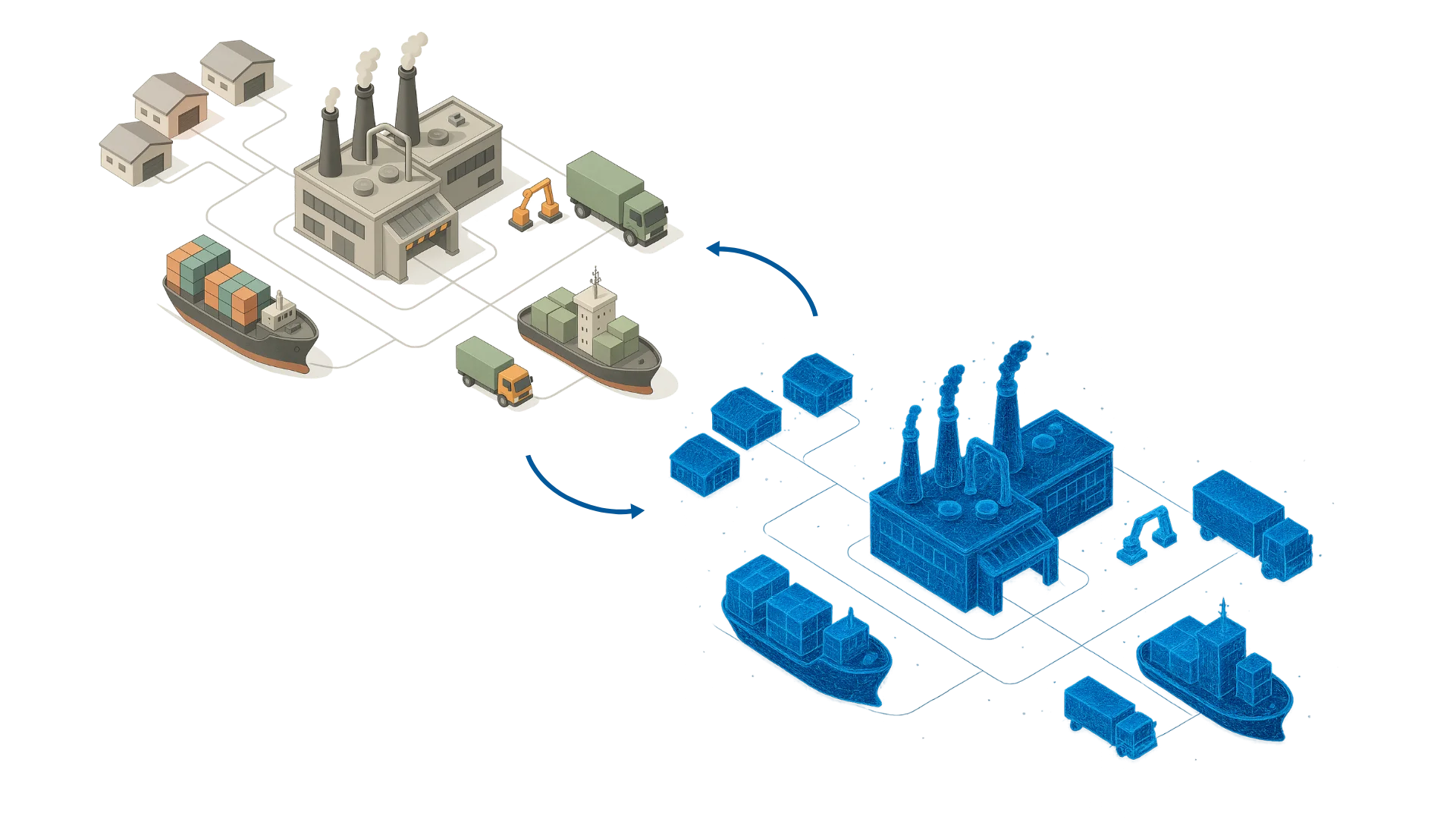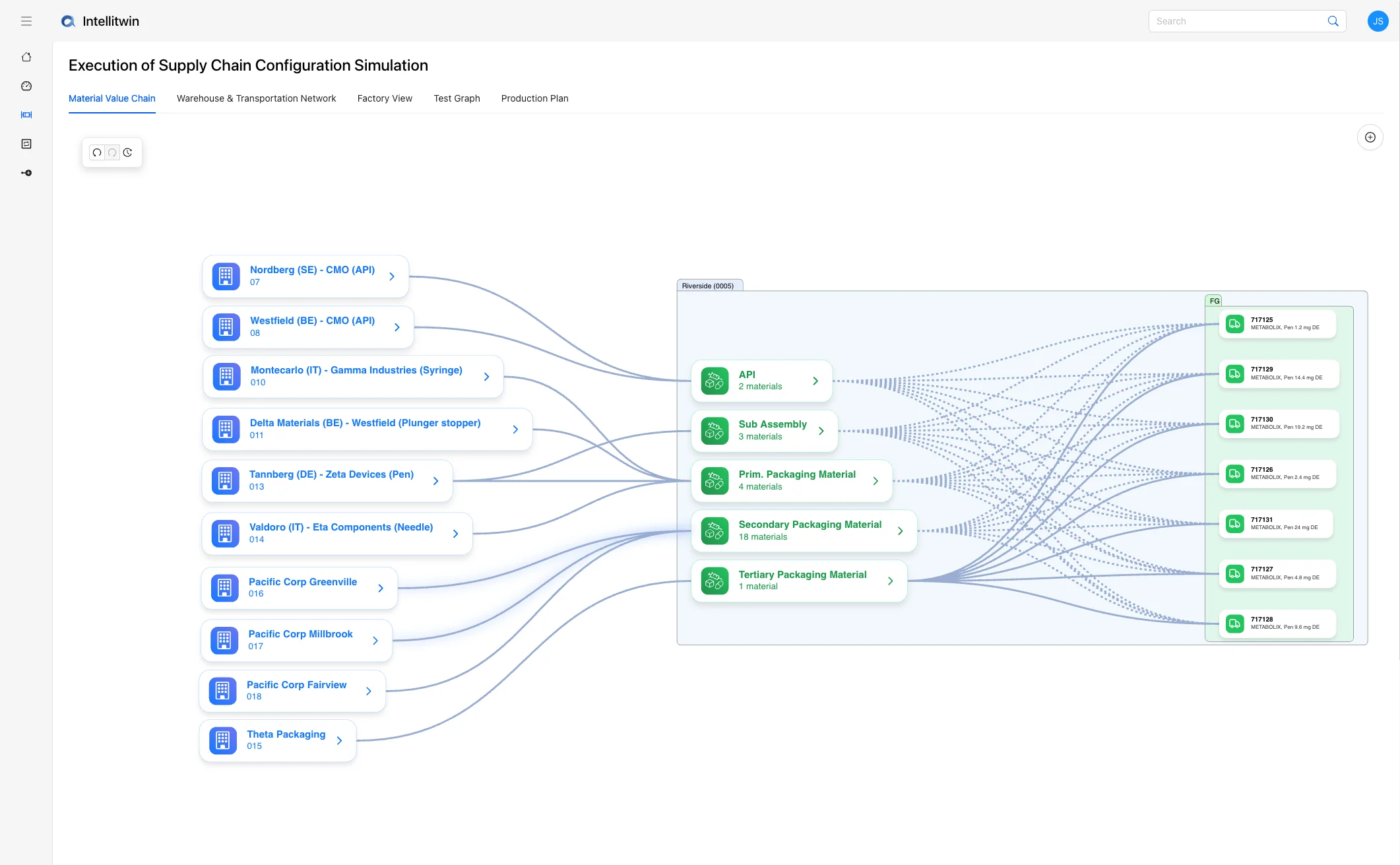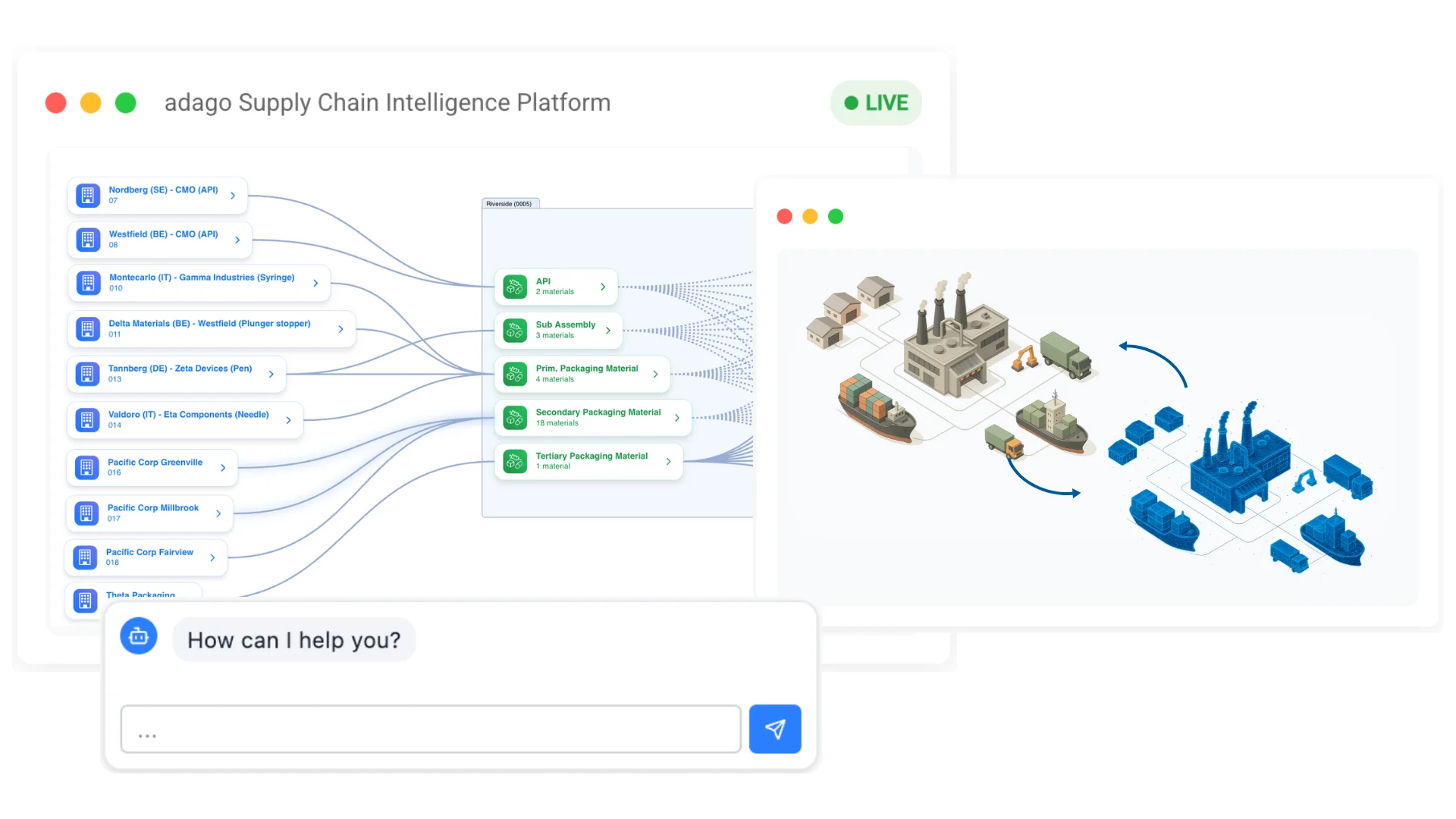What is Agentic AI?
Our Agentic AI combines intelligent conversation interfaces with powerful background simulation engines, creating autonomous agents that continuously learn and optimize your supply chain operations.
User Interaction
AI Simulation Engine
Your Supply Chain's Digital Mirror
Our Digital Twin creates a real-time, interactive replica of your entire supply chain ecosystem. Every supplier, facility, process, and connection is precisely modeled to enable perfect simulation and optimization scenarios.
Complete Network Modeling
Map every node, connection, and dependency across your entire supply network with real-time data synchronization.
Multi-Layer Analysis
Analyze operations from strategic planning down to individual SKU movements across multiple time horizons.
Real-time Calibration
Continuously calibrate the digital twin with live operational data for maximum accuracy and relevance.

Scenario Accuracy
Predict outcomes with industry-leading precision
Cost Reduction
Average operational cost savings achieved
Continuous Monitoring
Real-time visibility across all operations
Faster Decisions
Accelerated strategic planning cycles
Results and benefits may vary depending on individual circumstances and configurations.
Connect Your Existing Systems
adago IntelliTwin integrates seamlessly with your current infrastructure, connecting ERP systems, data platforms, and analytics tools to create a unified, intelligent supply chain ecosystem.
Three-Layer Integration Architecture
ERP Foundation Layer
Our platform connects to any modern ERP system, including but not limited to SAP S/4HANA, SAP ECC, Oracle, and other enterprise solutions. Real-time data synchronization ensures your digital twin stays current.
Data Platform Layer
Leverage your existing data infrastructure including cloud platforms and data warehouses. Scale processing power and storage as needed.
IntelliTwin Intelligence Layer
Our AI-powered digital twin sits on top, providing intelligent analysis, predictive insights, and optimization recommendations across your entire supply chain.
adago IntelliTwin
AI-Powered Supply Chain Intelligence
Data Platforms
ERP Systems
Plug & Play
No complex system overhauls. Connect to existing infrastructure with minimal disruption.
Enterprise Security
Bank-level encryption and compliance with SOC 2, GDPR, and industry standards.
Real-time Sync
Live data synchronization ensures your digital twin reflects current operations.
Discover Our Solutions
adago provides complete transparency along with powerful simulation and optimization capabilities. Explore our use cases and discover how our AI platform transforms every aspect of your supply chain operations.
Our Platform
Click to explore each solution in detail
Material Value Chain
Full Transparency
Factory Simulator
Simulating Resources
Production Simulator
Efficiency Optimization
Safety Stock Optimizer
Predictive Accuracy
EOQ Optimizer
Efficiency Optimization
Demand & Sales Simulator
Self-Learning Systems
Transportation Simulator
Analyse Logistics
Scenario Hub
What-If Analysis
Material Value Chain
Gain full transparency of your entire supply chain through End-to-End Visualization - from API to Finished Goods.

Our Platform
Click on a card to view details
Material Value Chain
Full Transparency
Factory Simulator
Simulating Resources
Production Simulator
Efficiency Optimization
Safety Stock Optimizer
Predictive Accuracy
EOQ Optimizer
Efficiency Optimization
Demand & Sales Simulator
Self-Learning Systems
Transportation Simulator
Analyse Logistics
Scenario Hub
What-If Analysis

Moritz Kern
CEO
Ready to Transform Your Supply Chain?
Whether you're ready to request a demo or simply want to explore how our solution can benefit your business, we'd love to connect!
Get in Touch
Fill out the form below and we'll get back to you within 24 hours.
